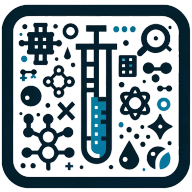6 Ethical Dilemmas in Drug Testing for Sensitive Positions
In a world where privacy and security often collide, how does six navigate the labyrinth of ethical dilemmas surrounding drug testing for employees in sensitive positions? This article explores six critical insights on the topic, starting with the delicate balance of drug testing and privacy. The journey concludes with a compelling call to focus on rehabilitation over punishment. Between these points, a wealth of perspectives awaits.
- Balance Drug Testing and Privacy
- Respect Employee Trust and Autonomy
- Ensure Fair and Unbiased Testing
- Clarify Criteria for Sensitive Positions
- Invest in Accurate Testing Methods
- Focus on Rehabilitation Over Punishment
Balance Drug Testing and Privacy
One ethical dilemma I've encountered, and can foresee more frequently in the future, is balancing the need for drug-testing potential employees in sensitive positions with respecting their privacy and personal freedoms. For example, in positions where individuals handle sensitive medical or financial information, ensuring that they are fully alert and capable of performing their job without impairment is crucial. However, there's a fine line between ensuring workplace safety and intruding on someone's private life, particularly in cases where employees may be using legal substances outside of work, such as prescribed medications or substances legal in some regions, like cannabis.
Several years ago, I faced a situation while managing a team at a healthcare facility. One of our key admin staff, responsible for handling confidential patient records, was flagged for a drug test as part of a routine hiring process. The results indicated cannabis use, but it was entirely legal and prescribed for a medical condition unrelated to their work performance. The dilemma was clear: should we disqualify a highly qualified candidate based on their private, legal activity or consider the context of their usage? My years of experience in both leadership and healthcare helped guide a balanced decision. By consulting with legal advisors and our HR team, we developed a policy that allowed for case-by-case assessments, focusing on impairment at work rather than blanket bans. In the end, we hired the candidate with clear guidelines ensuring they performed safely and effectively in their role. This experience reinforced the importance of nuance and empathy when making decisions that affect both the business and the personal rights of employees.

Respect Employee Trust and Autonomy
Drug testing can sometimes compromise employee trust and autonomy. Employees might feel their privacy is being invaded when subject to these tests. The balance between safety and personal freedoms creates a complex situation.
Balancing company needs and individual rights can be tricky. Therefore, companies should find transparent and respectful ways to conduct drug testing. Let's promote policies that respect both employee rights and workplace safety!
Ensure Fair and Unbiased Testing
Random drug testing may unfairly target specific groups, causing tensions within the workplace. It can sometimes amplify existing biases and inequalities, making certain employees feel singled out. This atmosphere can lead to feelings of resentment and exclusion among the workforce.
Ensuring that drug testing practices are fair and unbiased is critical. Efforts should be made to create a system that treats all employees equally. Encourage a shift toward more equitable drug testing practices!
Clarify Criteria for Sensitive Positions
Defining 'sensitive positions' for drug testing raises important ethical considerations. It is often unclear which roles truly require this scrutiny. Sometimes, decisions about which jobs are sensitive can seem arbitrary and inconsistent.
Employees may question the criteria used, leading to doubts about fairness. Clarifying these definitions can help create understanding and agreement. Push for clear and justifiable criteria in defining sensitive positions!
Invest in Accurate Testing Methods
Drug tests can occasionally be inaccurate, resulting in unfair consequences for employees. False positives can lead to job loss or disciplinary action for those who have not used drugs. This risk can cause anxiety and stress among employees, undermining workplace morale.
Reliable and accurate testing methods are essential to avoid these issues. Companies should invest in the best available testing technologies. Advocate for more reliable drug testing methods!
Focus on Rehabilitation Over Punishment
Rehabilitation, not punishment, should be the primary focus for employees struggling with drug issues. An overly punitive approach can discourage employees from seeking the help they need. A supportive environment can lead to better recovery outcomes and higher employee loyalty.
Emphasizing recovery can ultimately benefit the entire workplace, fostering a culture of care. Companies should provide resources for treatment and support. Champion the shift toward a rehabilitation-focused approach!

